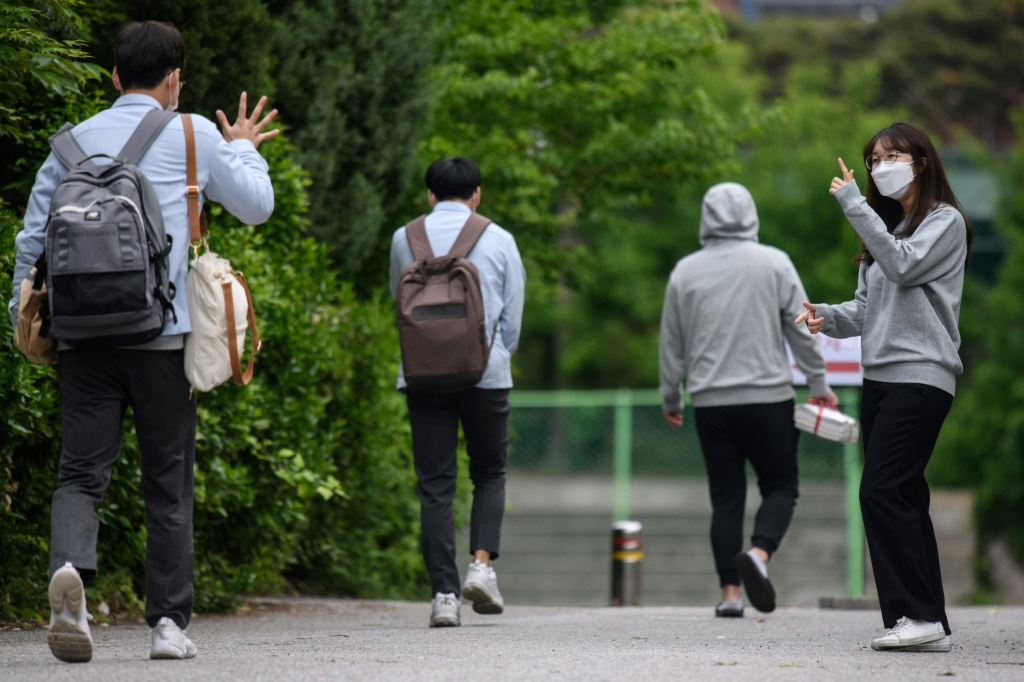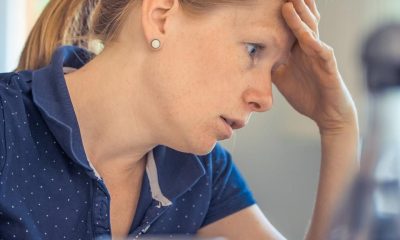As children return to school this year –- the third academic year to be affected by COVID – many parents, carers and teaching staff are worried about their safety from infection. They will also be concerned about the impact the pandemic has had on their academic progress and their mental health.
For children, the return to school after the summer break can of course be challenging in ordinary times. The past two academic years however have seen children and young people experience enormous change and uncertainty, with successive lockdowns and the self-isolation and remote learning they have brought.
Between May and July 2020, the University of Oxford conducted a survey of over 19,000 eight-to-18-year-olds in the south of England. When asked about how they felt about going back to school, over half of the respondents said they were looking forward to seeing their classmates, friends and taking part in extracurricular school clubs. One third, however, said they were worried about school work and attending lessons.
We all need time to adjust to the new academic year. So what are the factors parents and carers should keep in mind? How best can we support children in facing ongoing COVID uncertainty and any anxieties that might lead to?
Talking together
Talking with your child about the upcoming term is the first and most important step in supporting them, especially if they are starting a new school. For neurodiverse children it will be particularly important to make sure they know about things that will definitely be different in advance if possible.
Opt for neutral questions that encourage children to express their feelings rather than statements that assume negative or positive feelings. “How do you feel about..?” is more likely to prompt an honest conversation than assuming you know how they feel.
And honesty is key. Children and young people are quick to detect spin and it is better to explain uncertainty when it exists than to pretend that it does not. Anxiety arising from uncertainty can be supported by reminding children about what we know and what we can do.
It is important to listen to children and young people’s own thoughts about returning to school. For children who tend to get sucked into a whirlpool of worry, it might be helpful to make a worry box or introduce a worry time where a certain but limited amount of time is given to talk through any concerns they have.
Some young people may be concerned about returning to school and protecting themselves, or more frequently vulnerable relatives, from COVID-19. It can help for the young person to feel in control where they can be. For example reminding them that regularly washing their hands, wearing masks, keeping a distance and opening windows or being outside as much as possible will help reduce the chances of catching or transmitting infections.
Others may feel particularly anxious or become obsessive over certain things such as checking the news often. They may feel reassured by gentle reminders of what is and what is not their responsibility – and that scientists, healthcare staff and others are working hard to keep us all as safe as possible.
Healthy habits
While we all love slipping out of our work and school schedule during the holiday, the return to a regular routine can be beneficial. So encourage healthy habits – regular times to eat, sleep, study and play – in order to increase a sense of structure throughout the day. This can help children and young people feel safe and secure.
Play is an important factor here. We all need to do things that we enjoy to support our mental health and well-being. However great the need to catch up on academic work, children and young people learn best when mentally healthy, and it is important that school work does not squeeze out all the activities that children and young people find fun and engaging.
This is particularly important in the run up to exams, when given the increased stress and academic pressure, nourishing activities are all the more important. So prioritise time playing and exercising – outdoors where possible – in order to boost mood and help relieve anxiety and stress.
According to England’s Mental Health of Children and Young People Survey, there has been an increase in probable mental health conditions, from one in nine children aged five to 16 years in 2017 to one in six children in July 2020 across all age, sex, and ethnic groups. But we should note that this still means that five out of six children and young people are doing fine despite the disruption and uncertainty resulting from the pandemic.
While some mixed feelings are normal about the return to school, distress or difficult behaviour that persists over weeks or months and gets in the way of coping with the ordinary demands of life – however extraordinary life during COVID might feel – can signal a mental health problem. We would encourage parents, carers and teachers to seek help.
Further resources for parents and carers to support young people are available through the Mental Health Foundation, Young Minds, MIndEd, Charlie Waller and Mentally Healthy Schools. Resources are also available in foreign language translations at Emerging Minds and for all practitioners working with children and young people via ACAMH
Tamsin Ford, Professor of Child and Adolescent Psychiatry, University of Cambridge and Rasanat Fatima Nawaz, Doctoral researcher in psychiatry, University of Cambridge
This article is republished from The Conversation under a Creative Commons license. Read the original article.
















